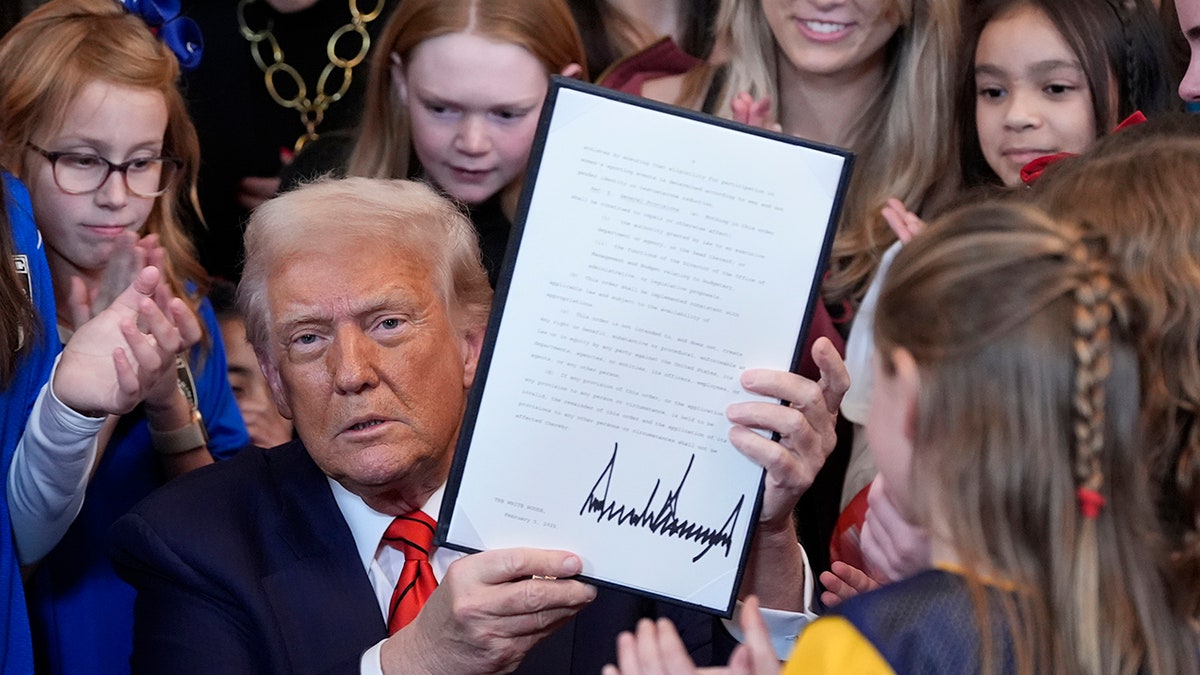Following President Donald Trump's executive order, the NCAA has revised its policy to ban transgender athletes from competing in women's sports. Trump celebrated this decision on Truth Social, hailing it as a victory for women's athletics and expressing hope that the International Olympic Committee (IOC) would adopt a similar stance. He positioned himself as a defender of women's sports, emphasizing the popularity of this policy among Americans and globally.
The NCAA's updated policy now states, "A student-athlete assigned male at birth may not compete on a women’s team," superseding the 2010 policy that permitted biological males to participate in women's sports after a year of testosterone suppression treatment.

This executive order is part of a broader strategy to influence international sports organizations, including the IOC, to ban transgender athletes from women's competitions. During the signing ceremony, Trump announced that Homeland Security Secretary Kristi Noem would be tasked with preventing transgender athletes identifying as women from entering the US for the 2028 Olympics. He stated his intention to instruct Noem to refuse visa applications from "men attempting to fraudulently enter the United States while identifying themselves as women athletes."

Recent Olympic games have witnessed controversies surrounding gender eligibility, with cases like boxers Imane Khelif and Lin Yu-ting winning gold medals despite previous disqualifications for failing gender tests. The IOC, however, maintained that both athletes were biologically female. Past instances include Laurel Hubbard, a transgender woman competing in weightlifting, and Quinn, a Canadian soccer player who identifies as nonbinary and transgender.
With a potential change in IOC leadership, there's speculation that the organization's stance on transgender inclusion might align with Trump's vision. Sebastian Coe, a candidate for the next IOC presidency and head of World Athletics, has hinted at implementing policies similar to those of World Athletics, which restrict transgender women who have undergone male puberty from competing in the female category. Coe has expressed discomfort over the controversies surrounding Khelif and Yu-ting.

A United Nations study has reported that close to 900 biological female athletes have lost out on medals due to competition from transgender athletes. The study, "Violence against women and girls in sports," highlights the displacement of female athletes in various competitions due to the inclusion of transgender athletes in the female category.
Comments(0)
Top Comments